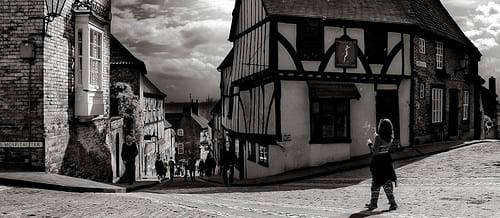The statue of Alfred Tennyson was a site that we really wanted to incorporate into our performance so decided to research into his poetry. We each read Cradle Song and then discussed our interpretations and what automatically sprung to mind when reading it. Our performance concept was about perception and imagination and we realised that a Tennyson poem has just as many layers of perception as physical sites around the cathedral.
Cradle Song
What does little birdie say
In her nest at peep of day?
Let me fly, says little birdie,
Mother, let me fly away.
Birdie, rest a little longer,
Till thy little wings are stronger.
So she rests a little longer,
Then she flies away.
What does little baby say,
In her bed at peep of day?
Baby says, like little birdie,
Let me rise and fly away.
Baby, sleep a little longer,
Till thy little limbs are stronger.
If she sleeps a little longer,
Baby too shall fly away.
(Tennyson, 1933, 5)
Also, over the last week our group delved deeper into people’s unconscious imagination regarding the cathedral. We researched both adults and children’s imagination, and gathered voice recordings of local shopkeepers and tourists about their perceptions of several sites shown to them via a picture. We also got in touch with the local Lincoln schools and inquired about recording children’s perceptions on the cathedral. However we realised that our original concept was lacking depth, we really liked the idea of children’s audio but that alone wouldn’t be enough to create a performance. We began to develop physical and creative tasks that the audience could take part in in conjunction with the audio. Each idea is focused on the creativity of the individual and celebrating and encouraging their imagination. Drawing their ideas in chalk, writing their perceptions on bunting, creating cards and posting them through a letterbox to a statue. All of which stimulate a sense of childlike creativity; hopefully encouraging them to drop their social filter as an adult and let their unconscious imagination come through. However after we tried a (very rough) run through, we realised that it still wasn’t enough. By having a trial run through of our performance, a lot of aspects that we hadn’t thought about became apparent problems. Realising these problems before the actual performance was extremely beneficial!
Watson Bain, A. (1933) A poetry book for boys and girls. Cambridge: University Press.
